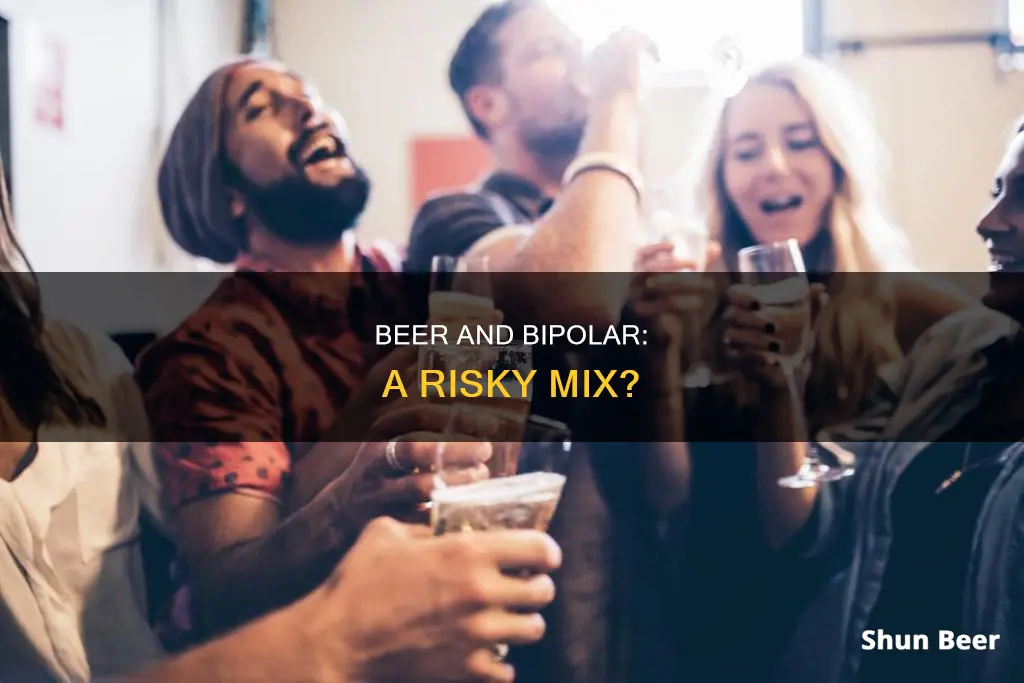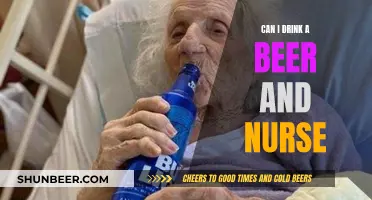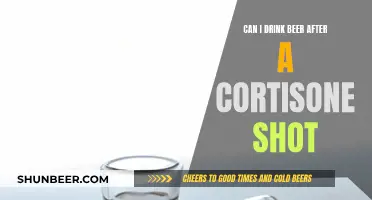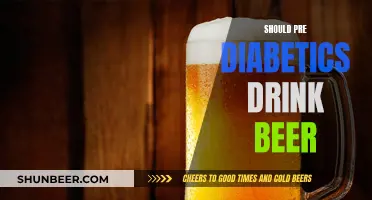
Bipolar disorder is a mental illness that causes manic moods and depression, which can be debilitating and dangerous. Alcohol use disorder commonly co-occurs with bipolar disorder, and it increases the risk for complications, worsens symptoms, and makes treatment more difficult. About 45% of people with bipolar disorder also have alcohol use disorder, and they are more likely to have more severe symptoms of bipolar disorder and a higher risk of dying by suicide.
Alcohol can exaggerate symptoms of both mania and depression. A person who consumes alcohol during a manic phase has a higher risk of engaging in impulsive behaviour because alcohol reduces a person's inhibitions. Alcohol is a central nervous system (CNS) depressant, so consuming it during a depressive phase can increase the risk of lethargy and can further reduce inhibitions.
People with bipolar disorder often use medications to stabilize their symptoms, and alcohol may interfere with these medications. For example, valproic acid is a CNS depressant that can have similar effects to alcohol, and using both at the same time can increase the effect, with potentially serious consequences.
While it may seem daunting to manage bipolar disorder and give up alcohol, treatment is effective and helps many people manage their co-occurring disorders.
| Characteristics | Values |
|---|---|
| Prevalence of bipolar disorder and alcohol use disorder | 45% of people with bipolar disorder also have alcohol use disorder |
| Impact on bipolar disorder symptoms | Alcohol can worsen bipolar disorder symptoms and increase the risk of complications |
| Interference with bipolar medications | Alcohol may interfere with bipolar medications, such as valproic acid and lithium |
| Treatment considerations | Treating both bipolar disorder and alcohol use disorder is essential for effective recovery |
| Risk factors | Genetics, self-medication, mania, and alcohol use can increase the risk of developing alcohol use disorder |
What You'll Learn

Alcohol and bipolar disorder: a complex relationship
Bipolar disorder is a mental illness that causes manic and depressive moods, which can be debilitating and dangerous. Alcohol use disorder commonly co-occurs with bipolar disorder, and it increases the risk of complications, worsens symptoms, and makes treatment more difficult.
The Link Between Bipolar Disorder and Alcohol Misuse
There is no clear explanation for the link between bipolar disorder and alcohol misuse, but several factors are at play. Genetics may be one link, as family history is a risk factor for both substance use disorder and bipolar disorder. Many people with bipolar disorder also turn to alcohol as a form of self-medication to cope with their symptoms and manage mood changes.
Alcohol's Impact on Bipolar Disorder Symptoms
Alcohol use can increase the severity of bipolar disorder symptoms and the risk of complications. It can trigger impulsive behaviour during manic phases, as alcohol reduces inhibitions. During depressive phases, alcohol, as a central nervous system depressant, can increase the risk of lethargy and further reduce inhibitions. Alcohol can also complicate the treatment of psychosis, increasing the risk of mental and physical complications.
Alcohol and Bipolar Medications
Alcohol may interfere with bipolar medications, such as valproic acid and lithium. Valproic acid is a central nervous system depressant that can have similar effects to alcohol, increasing the risk of serious consequences when combined. Alcohol can also cause liver problems, and when combined with valproic acid, it may increase the risk of liver disease.
Treating Bipolar Disorder and Alcohol Use Disorder
Treating both bipolar disorder and alcohol use disorder is essential for effective recovery. Treatment for bipolar disorder typically involves medication and therapy, while alcohol use disorder may involve a 12-step program or cognitive behavioural therapy.
Final Thoughts
The relationship between bipolar disorder and alcohol misuse is complex and bidirectional. While the exact nature of this relationship is not fully understood, it is clear that alcohol use can adversely affect the course of bipolar disorder and its treatment. It is crucial for individuals with bipolar disorder to approach alcohol with caution and prioritize healthy coping mechanisms to manage their symptoms.
Real Beer or Not: Norm Peterson's Drinking Habits
You may want to see also

Risks of drinking during a manic phase
Drinking alcohol during a manic phase of bipolar disorder can have serious consequences. Here are some risks to consider:
Increased Impulsive Behaviour
During a manic phase, a person with bipolar disorder may experience lower inhibitions, poor judgment, and increased impulsive behaviour. Alcohol is a central nervous system depressant that further reduces inhibitions. When consumed during a manic phase, alcohol can heighten these effects, leading to even more impulsive behaviour. This can result in dangerous or risky actions that could have severe consequences.
Exaggerated Symptoms
Alcohol can exaggerate the symptoms of both mania and depression. During a manic phase, a person may already be experiencing intense happiness, euphoria, high self-confidence, rapid thoughts, and increased sociability. Alcohol consumption can intensify these feelings, leading to even more exaggerated behaviour. This could result in a loss of control and an increased risk of harm to oneself or others.
Medication Interference
Alcohol may interfere with bipolar medications. For example, it can increase the risk of developing toxic levels of lithium in the body, as alcohol causes dehydration. Additionally, valproic acid, a medication used to treat bipolar disorder, is also a central nervous system depressant, and combining it with alcohol can increase its effects, leading to potentially serious consequences. Not taking the prescribed medication or skipping doses to drink alcohol can also cause bipolar symptoms to return or worsen.
Increased Risk of Complications
Alcohol consumption during a manic phase can increase the risk of complications associated with bipolar disorder. This includes a higher likelihood of hospitalisation, more frequent mood cycles, and more severe symptoms. Alcohol can also trigger psychotic episodes, especially if the person is already prone to psychosis during manic phases. Consuming alcohol during these episodes can lead to both short-term and long-term mental and physical complications.
Difficulty in Treatment
Drinking alcohol during a manic phase can make the treatment of bipolar disorder more challenging. It may interfere with the effectiveness of medications and can also impact a person's ability to adhere to their treatment plan. Additionally, alcohol use can make it harder for doctors to accurately diagnose bipolar disorder, as alcohol use and withdrawal can mimic the symptoms of various psychiatric disorders.
Beer and Health: Daily Drinking, Good or Bad?
You may want to see also

Alcohol and medication: potential interactions
Alcohol and medication interactions can have serious consequences for people with bipolar disorder. Mixing alcohol with bipolar medication can worsen side effects such as drowsiness, dizziness, memory impairment, confusion, and poor judgment. It can also increase the risk of falls and injuries.
The consumption of alcohol during treatment with certain medications, such as bupropion, should be avoided due to the risk of severe side effects, including seizures, hallucinations, delusions, paranoia, mood and behavioral changes, depression, suicidal thoughts, anxiety, and panic attacks.
Alcohol should also never be mixed with certain anti-anxiety benzodiazepine medications used in bipolar disorder, such as clonazepam or lorazepam, as this can result in additive dizziness, drowsiness, and depressed breathing.
In general, it is recommended to avoid the combined use of bipolar disorder medications and alcohol. If someone drinks alcohol frequently, they should discuss this with their doctor and review each medication they are prescribed for potential alcohol interactions.
Additionally, alcohol can increase the severity of bipolar disorder symptoms, including extreme manic or depressive episodes, and can make it more difficult to control the impulse to drink during shifts in mood.
Beer vs Liquor: Which Drink is More Harmful?
You may want to see also

Alcohol as a means of self-medication
Alcohol use disorder (AUD) is a common co-occurring condition in people with bipolar disorder. About 45% of people with bipolar disorder also have AUD, and over 60% will be diagnosed with a substance use disorder at some point in their lives.
There are several factors that explain the link between bipolar disorder and alcohol misuse. One factor is genetics, as family history is a risk factor for both substance use disorder and bipolar disorder. Another factor is self-medication, where individuals with bipolar disorder turn to alcohol as a coping mechanism to manage their symptoms. Manic episodes, for example, can lower inhibitions and trigger poor judgment and self-destructive behaviours, which may lead to excessive drinking.
However, alcohol use can worsen the symptoms of bipolar disorder and increase the risk of complications. It can interfere with bipolar medications, such as lithium for mood stabilization, by increasing the risk of toxic levels in the body due to dehydration. Additionally, alcohol can increase the sedative effects of mood stabilizers, which can be dangerous.
While the exact nature of the relationship between bipolar disorder and alcohol use is complex and not yet fully understood, it is clear that alcohol use can have detrimental effects on individuals with bipolar disorder. It is important for individuals with bipolar disorder to be cautious about drinking and to seek treatment for both conditions if necessary.
Drinking Beer at the Park: Is It Legal?
You may want to see also

Treatment for bipolar disorder and alcohol use disorder
Bipolar disorder and alcohol use disorder (AUD) are two serious conditions that often co-occur. About 45% of people with bipolar disorder also have AUD, and this combination can have severe consequences if left untreated. People with both conditions tend to experience more severe bipolar symptoms and are also at a higher risk of dying by suicide. Therefore, it is essential to treat both bipolar disorder and AUD.
Treatment Options
Doctors often diagnose and treat bipolar disorder and AUD separately, which means that people with both conditions may not initially receive the full treatment they need. However, there is a recent trend to consider treating both conditions simultaneously. Your doctor might recommend one of the following three strategies:
- Treat one condition first, then the other: The more pressing condition, usually AUD, is treated first.
- Treat both conditions separately, but at the same time: This involves addressing the symptoms of each condition individually and in parallel.
- Combine treatments and address the symptoms of both conditions together: Many people consider this third approach to be the best method, as it treats both conditions holistically.
Treatment Methods
While there isn't extensive research on how to best combine treatments for bipolar disorder and AUD, some effective methods for treating each condition include:
Bipolar Disorder
- Medication: Medication is an essential part of managing bipolar disorder. Antidepressants, mood stabilizers, and antipsychotics can help manage symptoms and reduce the frequency and severity of mood cycles.
- Therapy: Individual or group therapy can provide an outlet for expression and practical strategies for managing bipolar symptoms.
Alcohol Use Disorder
- 12-Step Program: This program can help individuals with AUD address their drinking habits and work towards recovery.
- Cognitive Behavioral Therapy: Therapy can help individuals with AUD understand their thoughts, feelings, and behaviours related to alcohol use and develop healthier coping strategies.
Outlook
Treating both bipolar disorder and AUD is crucial, as alcohol can increase the symptoms of mood shifts in people with bipolar disorder and interfere with the effectiveness of mood stabilizers. If you or someone you know has bipolar disorder, AUD, or both, it is important to talk to a doctor or mental health professional about treatment options.
Beer Drinking: Everyday Habit or Unhealthy Vice?
You may want to see also







